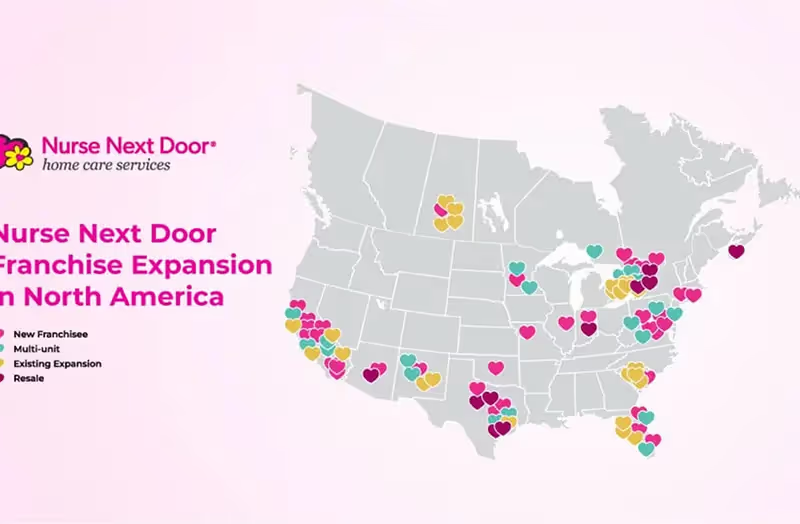
The Future Of The Home Care Business (Post COVID-19)
Owning a senior care franchise is not only rewarding, but it can provide financial security and stability regardless of the financial climate. There has always been a demand for high-quality in-home caregivers, nurses and support workers, and that demand is expected to grow in the foreseeable future.
The international accounting and auditing firm Deloitte projects that the home care industry will grow to $157 billion by 2022, and the COVID-19 pandemic is likely to push that even higher as hospitals, nursing homes and other health care services are overburdened by the onslaught of novel coronavirus patients. Along with COVID-19, a number of well-documented demographic factors are fueling the demand for home care services.
Factors Impacting the Growth of Home Care Business
The single most important factor impacting the increasing demand for in-home caregiver services is the number of adults age 65 and older. While the home care business supports people of all ages, seniors are by far the largest demographic served by home care nurses, caregivers and personal support workers.
In 2000, approximately 12.4% of the U.S. population was 65 or older. By 2030, 19.6%, or nearly one in five, Americans will be over the age of 65. By 2034, that number is expected to rise to 23.4%, marking the first time in U.S. history that older adults are projected to outnumber children.
Not only is the population aging at historic rates, but this wave of 'baby boomers' are strong proponents of aging in place. These seniors are increasingly seeking services and supports that allow them to remain in their own homes for as long as possible.
Senior care services can help reduce hospitalization and institutionalization rates among older adults by providing the medical and non-medical care needed to manage chronic diseases such as diabetes. Home care nurses also play a critical role in promoting healthy eating and personal hygiene, providing much-needed social interaction and identifying emerging health issues in clients before emergency care is required.

The Shift Away From Institutionalized Senior Care
Institutionalized care for seniors and people with disabilities comes at a staggering cost. According to Genworth's 2019 Cost of Care Survey, the average monthly cost of private nursing home care in the United States is $8,517, and in some regions, this cost is more than $10,000 per month. At over $100,000 per year, many older adults simply can't afford to be in a private nursing home.
Given the high cost of institutional care for seniors, many insurance providers are promoting the home care business as a cost-effective, consumer-friendly way to support aging adults who require skilled and non-skilled care. This shift away from institutionalization of seniors means increased demand for licensed, insured and respected home care businesses such as Nurse Next Door.
The emergence of health technologies such as telehealth and virtual doctor visits, advanced medical alert systems with fall detection, and in-home stair lifts and mobility devices have also helped to prevent premature institutionalization of seniors and people living with chronic medical conditions.
Looking for more information on Home Health Care Franchise? Click HERE to get access to your Welcome Package
How Will COVID-19 Impact Home Care Business?
The COVID-19 pandemic has placed unprecedented demands on the health care system, impacting not only coronavirus patients, but the entire population. Elective surgeries have been cancelled, hospital services have been reduced, and many community-based services have been shuttered.
Worse yet, COVID-19 has been particularly devastating for seniors and those who have chronic medical conditions such as asthma, diabetes, COPD and cardiovascular conditions. Given the newfound awareness around how quickly a transmittable disease can spread through a care facility, it's likely that more and more seniors will seek help from a home health care business. According to the Centers for Disease Control and Prevention, "the best way to prevent illness is to avoid being exposed to the virus", and remaining at home dramatically reduces the risk of contracting COVID-19 and other communicable diseases.
The CDC also states that, "older adults and people of any age who have serious underlying medical conditions might be at higher risk for severe illness from COVID-19". This statement emphasizes the importance of services through a home care franchise such as Nurse Next Door, as bringing nursing services to seniors and people with pre-existing medical is likely to be significantly safer than delivering those same services in a communal setting.

Families Now Rely on Home Care Businesses to Deliver Senior Care Services
The growth of the home care business is also driven by adult children who rely on services from home health agencies such as Nurse Next Door to keep their parents safe and comfortable. Nobody wants to see their loved one placed in a nursing home, and the home health care business provides a compassionate, cost-effective alternative for those who need extra help to stay in their homes.
Many families struggle to balance child care duties, careers, and caring for aging parents, and those struggles have also bolstered the growth of the home care business. It's common for adult children to arrange for a visiting nurse or caregiver for their parent or parents, particularly in situations where the children don't live in the same town, city or state as their parents.
To learn more about the future of the home health care business, contact Nurse Next Door. As a leading home care franchise company in North America, Nurse Next Door will be integral in relieving pressure on the health care system due to COVID-19 by keeping seniors safe at home.
Sources: Deloitte, CDC
Looking for more information on Home Health Care Franchise? Click HERE to get access to your Welcome Package.
No Obligation Complimentary Call
Our Franchising Experts Have Answers to All of your Questions.
Recommended Reads

Can Home Care Franchising Be Profitable?
A breakdown of what actually makes a home care franchise profitable. From rising demand and recurring revenue to the operational and branding advantages that help Nurse Next Door owners scale faster, retain clients longer, and build lasting equity.

Top 10 Questions Entrepreneurs Ask Before Buying a Home Care Franchise — Answered
Stepping into the home care industry? We answer the top 10 questions entrepreneurs ask about costs, scaling, and building a business with heart.

Entrepreneur Franchise 500: Why Nurse Next Door Is a Top Global Franchise
We are thrilled to announce that Nurse Next Door Home Care Services has once again been recognized by Entrepreneur magazine, earning a spot on its Franchise 500® list—ranking as one of the Top Global Franchises and Top Franchises for Less Than $150,000 in 2025.
The Caring Journal
The Caring Journal is your go-to destination for stories, insights, and resources that celebrate the art and heart of caregiving.









